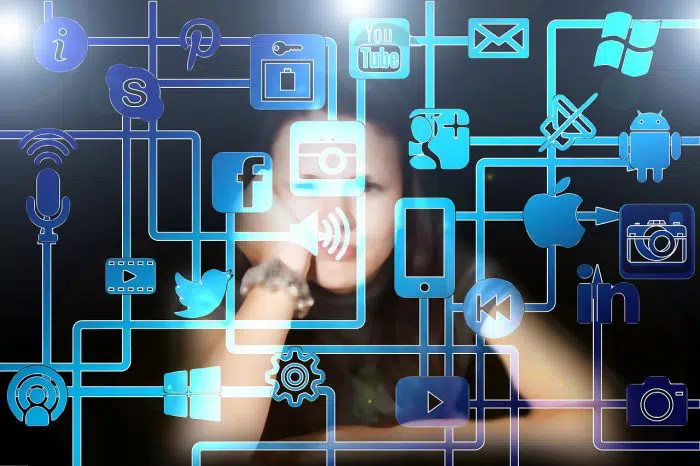Work-life balance is a huge factor in productivity. When our lives are not in balance, nearly every aspect of our day in and day out can suffer.
Yet, often when we think of balanced living, we consider whether we are working too much and letting our personal life get shorted. But what if it’s the other way around?
Spending too much time relaxing, goofing around, or being non-productive instead of accomplishing what we need to accomplish, can be just as much of an issue (if not more for some people) than too much work and no play.
The key in either scenario is exactly as the term implies—a lack of balance in our lives.
Balance, in fact, is essential to the proper functioning of nearly everything that exists. When anything is out of balance, both sides of the equation are subject to harm. It’s essentially the yin and yang of all being.
Experts say that’s when social media can be BAD—if it becomes so consuming so it throws our attempts at balanced living out of whack. Social media can be a time-hog if we are not careful. We get on for just a minute, then look at the clock and notice hours have gone by…
Yet, some would argue, “I use social media for balance. I work so much that social media is my release. It’s my time to catch up with family and friends I don’t see every day. It’s my time to catch up on the news even. It’s my time to chill.”
Okay…maybe. But again, only if it’s in balance.
A recent article on HBR talks about a Deloitte study finding many smartphone users check their social media apps first thing in the morning. Often, even before getting out of bed. And sure, they concede, interacting socially with others is great. People blossom when they have strong relationships with other people.
But what if this interaction begins to completely take the place of face-to-face interaction? Other past research has found that to be true. This same article on the impact of social media on a state of balance says:
“Prior research has shown that the use of social media may detract from face-to-face relationships, reduce investment in meaningful activities, increase sedentary behavior by encouraging more screen time, lead to internet addiction, and erode self-esteem through unfavorable social comparison. Self-comparison can be a strong influence on human behavior, and because people tend to display the most positive aspects of their lives on social media, it is possible for an individual to believe that their own life compares negatively to what they see presented by others.”
On the other hand, other studies have shown just the opposite. That social media DOES provide beneficial social support to some users.
This inconsistency of opinion is what prompted the Harvard Business Review to do their own study. They used a panel maintained by Gallup and compared depth and extent Facebook usage with long-term happiness. Additionally, they compared and contrasted results with real-world (real-life) social interactions and effects. You can see all the details here: https://hbr.org/2017/04/a-new-more-rigorous-study-confirms-the-more-you-use-facebook-the-worse-you-feel.
The results were very interesting! Even though social media interactions seemed to mirror in-person interactions, in-person social interactions strengthened emotional well-being while the same on social media hindered it. In fact, a year of social media interaction seemed to correlate with negative emotional health.
Specifically, “[they found] consistently that both liking others’ content and clicking links significantly predicted a subsequent reduction in self-reported physical health, mental health, and life satisfaction.” It also appeared it wasn’t just the interaction itself that caused the problem, but the quality (type) and quantity of interactions.
Furthermore, they hypothesize this is not only true with Facebook, but rather can be extrapolated to all other forms of social media too. Importantly, it’s important to note that what’s also important is that people seemed to think they were helping themselves – that this social interaction was a substitute for the real thing. Now, however, YOU know. Time to do something about it and if you spend an hour or more on the social networks each day, decide if it’s time to change that. An upcoming article we are working on will address just how to do that if you’re ready!


